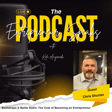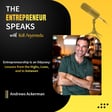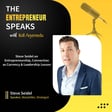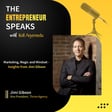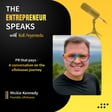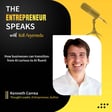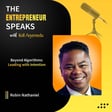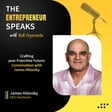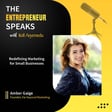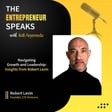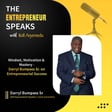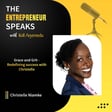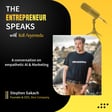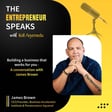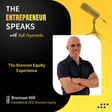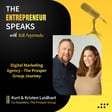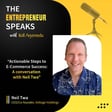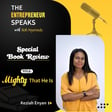
Sales Success Unlocked : Jacob Hicks on Mindset, Storytelling & Follow -up
In this episode of The Entrepreneur Speaks Podcast, I’m joined by Jacob Hicks , a dynamic coach, keynote speaker, and sales strategist with over a decade of experience transforming lives and businesses. Known for his mindset-driven coaching, powerful follow-up systems, and authentic storytelling approach, Jacob has empowered countless entrepreneurs and professionals to break through barriers, close more deals, and build lasting success.
From his own entrepreneurial journey to his proven strategies, Jacob shares:
✅ Why storytelling in sales is the ultimate trust-builder and how to craft stories that truly resonate
✅ The secrets to building a follow-up system that converts without being pushy
✅ How to shift your mindset around sales from fear to confidence
✅ Practical tips you can apply today to sell yourself, your ideas, and your business with ease
Jacob’s blend of practical insights, engaging storytelling, and no-nonsense coaching will inspire you to rethink how you approach sales, relationships, and growth. Whether you’re a founder, creative, coach, or business professional, this episode will leave you with actionable tools and a fresh perspective on what it really takes to succeed.
🎧 Tune in now and discover how mindset, storytelling, and follow-up can transform not just your business, but your life.
Don’t forget to like, share, and subscribe so you never miss an inspiring episode of The Entrepreneur Speaks!
#Entrepreneurship #SalesStrategy #JacobHicks #BusinessGrowth #MindsetMatters #StorytellingInSales #FollowUpSuccess #TheEntrepreneurSpeaks
